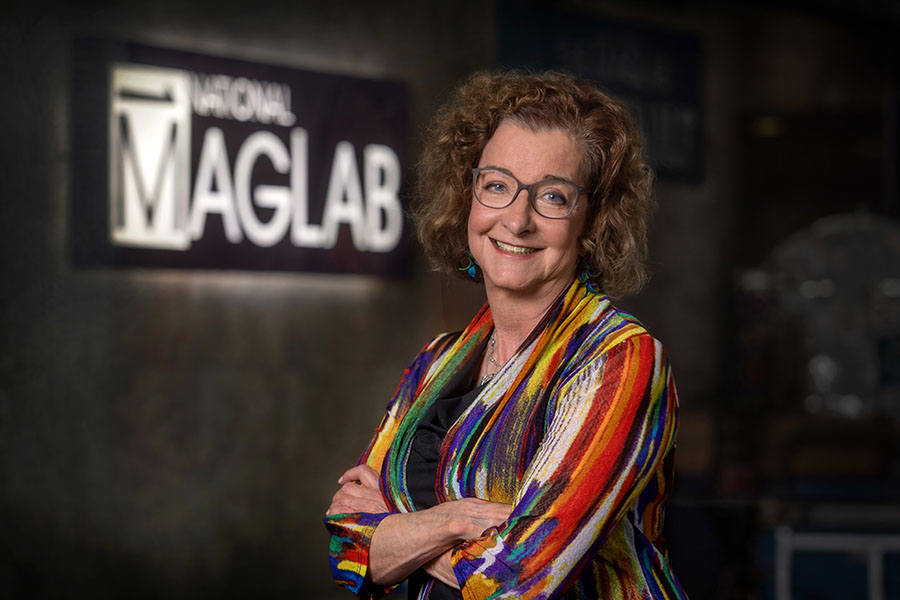
The chief scientist at the Florida State University-headquartered National High Magnetic Field Laboratory has been appointed to serve on the President’s Council of Advisors on Science and Technology (PCAST).
U.S. President Joe Biden named Laura Greene, chief scientist at the National MagLab and the Marie Krafft Professor of Physics at Florida State University, as part of his first group of appointees to the council on Sept. 22, 2021.
“I am humbled and honored to be selected to advise the president on science and technology policy,” Greene said. “I feel like this is my opportunity to serve my country in a way where I can make a real contribution and help ensure that America remains a global leader in both foundational and applied research.”
Greene is a widely respected researcher on quantum materials and the mechanisms of unconventional superconductivity. She has held leadership roles in many of the nation’s most prestigious science organizations, including president of the American Physical Society (APS) and a member of the Board of Directors for the American Association for the Advancement of Science (AAAS). Greene also is a member of the National Academy of Sciences, the American Academy of Arts and Sciences, the Institute of Physics (U.K.), and the APS. She has been awarded the E.O. Lawrence Award for Materials Research from the U.S. Department of Energy, the APS Maria Goeppert-Mayer Award and the Bellcore Award of Excellence.
“This is the latest in a long string of remarkable recognitions for Laura Greene,” said FSU President Richard McCullough. “She is a great representation of the high-quality faculty we are proud to have here at Florida State University.”
Prior to joining Florida State to serve as the chief scientist at the NSF-funded National MagLab, the world’s largest and highest-powered magnet lab in 2015, Greene was the Emerita Swanlund Professor of Physics at University of Illinois at Urbana-Champaign.
“Laura brings not just an expertise in materials research, but a deep understanding of scientific organizations around the world and the impacts that science has on peoples’ lives — key perspectives that will bring great value to her role within this group of advisors,” said Greg Boebinger, director of the National MagLab.
Greene holds a bachelor’s degree from Ohio State University and a master’s degree and doctoral degree in physics from Cornell University. She has co-authored more than 200 publications and presented over 600 invited talks. She also holds an appointment at the University of Florida.
PCAST advises the President on matters involving science, technology and innovation policy, as well as on matters involving scientific and technological information that is needed to inform public policy relating to the economy, worker empowerment, education, energy, the environment, public health, national and homeland security, racial equity and other topics. Although similar science advisory committees date to 1933 under President Franklin D. Roosevelt, the first PCAST was appointed by President George H.W. Bush in 1990.




